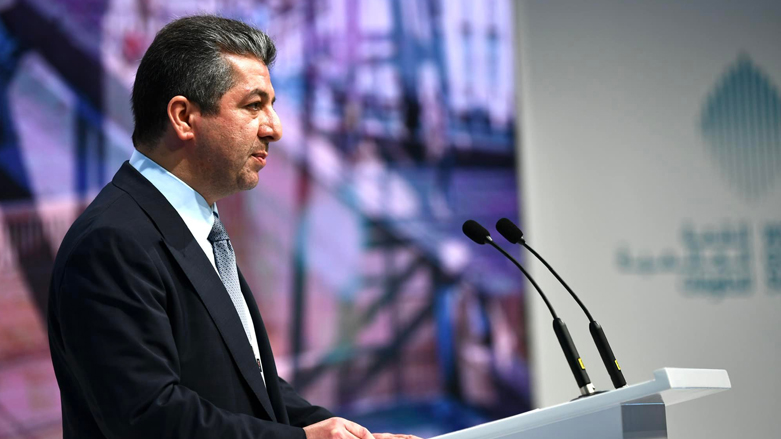US welcomes increased energy production as KRG announces readiness to help meet world energy needs

WASHINGTON DC (Kurdistan 24) – The State Department, responding to a question from Kurdistan 24, said that it very much welcomes any increase in energy production from countries that produce and export energy as a counter to Russian aggression in Ukraine.
Economic sanctions are a major tool of the US for punishing Russia for invading Ukraine and bringing Russian President Vladimir Putin to the negotiating table.
Moreover, as US President Joe Biden has stated, this is a protracted conflict between the US, Europe, and Japan, on the one hand and Russia on the other. Indeed, Biden sees the ongoing confrontation over Ukraine as yet one more phase in a very long, historic battle between democracy and autocracy—and energy is playing a key role.
“This new battle for freedom has already made a few things crystal clear,” Biden affirmed on Saturday as he outlined his plans for fighting it while visiting Poland.
“First,” as the US President said, “Europe must end its dependence on Russian fossil fuel.”
Kurdistan Region Increasing Gas and Oil Production
On Monday, the Prime Minister of the Kurdistan Regional Government (KRG), Masrour Barzani, spoke to the Atlantic Council’s Global Energy Forum in Dubai.
I'm honored to be at #ACEnergyForum to talk about the future energy potential of the Kurdistan Region of Iraq. I carry with me the good wishes and aspirations of our people. pic.twitter.com/f48jbPmoqA
— Masrour Barzani (@masrour_barzani) March 28, 2022
Barzani described how the Kurdistan Region is increasing its energy production. “I’m confident that Kurdistan will soon become an important source of energy for the world’s growing demand,” he stated.
“We will become a net exporter of gas to the rest of Iraq, Turkey and Europe in the near future and help meet their energy security needs,” Barzani continued, as he also explained, “Recently, the United States has recognized the potential in our gas sector and have partially financed efforts to increase production.”
“Last year, we issued a directive to all oil companies operating in the Kurdistan Region to end gas flaring,” he added. “We’ve already opened our first plant that now captures flared gas.”
Barzani also cited the oil production of the Kurdistan Region. “Already we have an export oil capacity,” he said, “which acts as an essential economic lifeline for us and a vital potential supply for our partners.”
He also noted how new the Kurdistan Region’s energy industry actually is. It was only made possible by the 2003 war that overthrew Saddam Hussein and his regime. Until then, the Kurdistan Region was subject to the same sanctions as the rest of Iraq.
“We have gone from almost a standing start, when we passed our oil investment law 15 years ago,” Barzani said, “to a region that produces and exports around half a million barrels of oil per day and also produces almost half a billion cubic feet of gas per day, with the potential to grow both of these further.”
Strategic Partnership with the Kurdistan Region
Soon after assuming office, the Biden administration, already in April 2021, described its relations with the Kurdistan Region as a “strategic partnership.”
Read More: Biden administration: We have a ‘strategic partnership’ with the Kurdistan Region
Asked on Monday about Barzani’s declaration earlier that day that the Kurdistan Region would be increasing its energy production, a State Department Spokesperson responded, “It is in everyone’s interest to reduce the impact of Russia’s aggression on the global energy marketplace.”
“We support efforts by energy producing countries to ensure adequate energy supplies to Europe,” she continued, “and avoid supply disruptions at a particularly sensitive time for global energy markets.”
“This is just one more example that demonstrates how the Kurds really are strategic partners of the US,” Col. Norvell De Atkine (US Army, Retired), who long taught Middle Eastern political-military affairs at Fort Bragg, where he instructed Special Operations Forces, advised Kurdistan 24.
“Much more so than Iraq as a whole, they are sensitive to US concerns and often share them,” De Atkine continued, “and in their disputes with Baghdad, we should be supporting the Kurds.”
Indeed, as Barzani affirmed before the Atlantic Council forum, “We have demonstrated time and again our strength of purpose and our loyalty to our friends.”
“We are a people of our word.”
